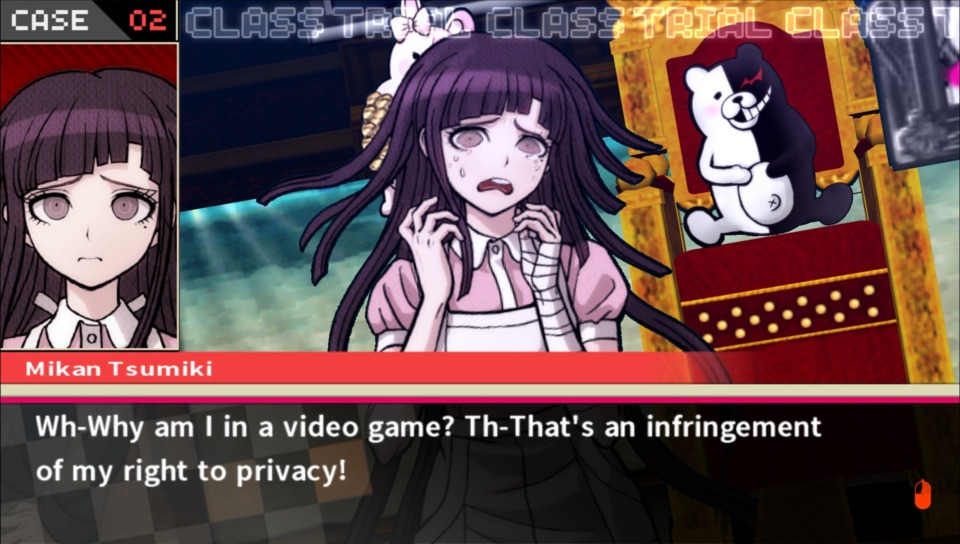I played some games containing the word "Shock" and the Number 2 (and other good uses of time and money)
By ArbitraryWater 6 Comments
It only took 5 months, but I finally mustered enough willpower to start long-form writing about video games again after a combination of a capstone paper and two back-to-back Game of the Year blogs ruined my desire to throw thousands of words at a screen. I’m sure you’re as excited as I am, so let’s get to it.
Bioshock 2
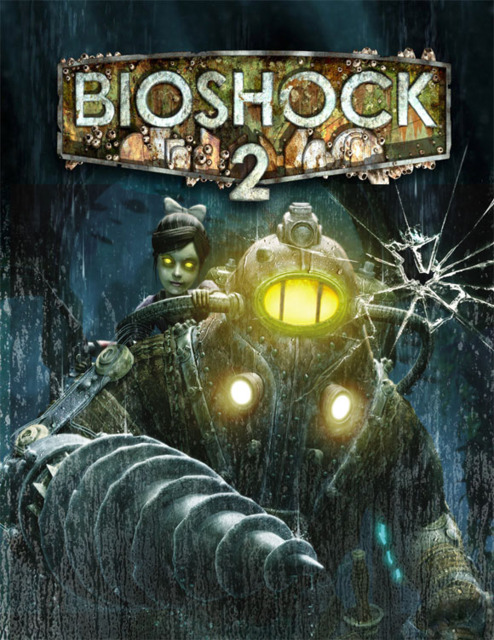
As part of my “I should probably play something other than these damn Kingdom Hearts games or I’ll go insane” initiative, I finished Bioshock 2 recently. For a farmed-out sequel to a game that ended fairly conclusively, it’s better than it has any right to be. It meaningfully addresses a lot of the first game’s mechanical shortcomings, with stuff like dual-wielding, a significantly better hacking minigame, and a generally wider set of options for plasmids and tonics. I’m not going to go out here and claim it’s Doom 2016 or anything over here, but that dual-wielding means combat has more of a flow to it and incentivizes more than using electro-bolt and the wrench for a good 75% of encounters.
However, I think it’s fair to say the original Bioshock is not oft heralded for the quality of its gunplay, or really most of the part where you play it, and the same is true for Bioshock 2. It was the quality of the writing, the environmental storytelling, and the philosophical ideas at play. Sure, I could go back and argue those ideas only come off as well as they do because big mainstream video games didn’t exactly care about immersive storytelling or basic philosophical concepts in 2007, but that’s besides the point. I might be the dingus advocating for Neverwinter Nights 2: Mask of the Betrayer as the best written game story of 2007, but if we’re talking games people other than me and my CRPG dork friends have heard of, it’s Bioshock. And Mass Effect.
Bioshock 2 opts to pick up the pieces of Bioshock’s Underwater Ayn Rand Utopia by saying “What if that, but the opposite?” Sofia Lamb is an inherently less interesting figure than Andrew Ryan, fan-fiction’d into existence as his nemesis who totally existed the entire time. (Fontaine who?) For as contrived as much of the game’s setup is, I don’t begrudge the writers at all. There is effort and there are moments in Bioshock 2’s storytelling, which is why it’s sort of tragic that they’re constrained by being in a direct sequel to a narrative that already exhausted most of its concepts. Even with that excuse, however, saying “Hey, unrestrained collectivism would be pretty bad too!” isn’t a particularly daring stance to take, and the Subject Delta/Eleanor stuff is a weird attempt at putting an emotional core behind the whole thing in a way that doesn’t really work. It all comes together in an experience I’d describe as equal parts competent and unmemorable, which might be the single most damning thing I can say about it. Bioshock Infinite might be a beautiful, somewhat problematic mess in retrospect, but I cannot say any part of it is forgettable.
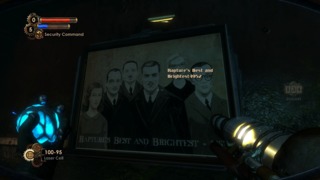
If there is an corollary to my thoughts on Bioshock 2, it came in the form of the Minerva’s Den DLC. Much of the team behind Minerva’s Den would go on to make Gone Home and you can see a lot of that in how it’s designed. While there are still combat encounters and an accelerated progression ramp, most of Minerva’s Den’s 2-3 hour runtime is dedicated to telling the small-scale, personal story of a few people in one little corner of Rapture. Not only is it a better-written, more cohesive story than the main game, it feels like a promise of DLC that never truly manifested itself. Outside of something like Assassin’s Creed: Freedom Cry, I struggle to think of many similar examples in the AAA space, and that’s a shame. Legitimately, if you randomly stumbled into a copy of Bioshock 2 and haven’t done so already, I highly recommend you take a look at Minerva’s Den. It’s worth playing on its own.
System Shock 2
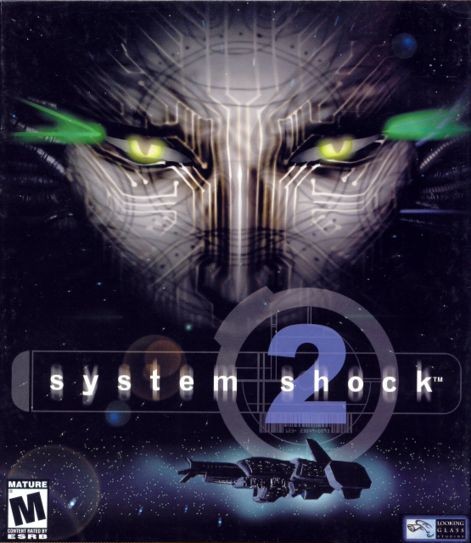
For whatever reason, I wasn’t done with convenient audio logs and abandoned environments in my video games. System Shock 2 is arguably far more on-brand for me, a cult classic PC game from the late 90s that I somehow never wrote about when that was my whole thing. It’s a game with a reputation and legacy that almost speaks for itself, spoken of in hushed whispers alongside other Looking Glass games like Ultima Underworld and Thief. While I’d certainly played parts of it before, it’s been something of a white whale for years now, alongside the likes of Arcanum and Morrowind in the pantheon of “Old-ass PC games that I should play more of.” It’s a bit of a surreal experience to come to in 2019, one I think still holds up astoundingly well in spite of its age.
Going into SS2 straight off of Bioshock 2, I think the most striking thing is how immediately recognizable a lot of it is despite being almost 20-years-old. While one can go even further back to the first System Shock or even Ultima Underworld and see the roots of the entire “immersive sim” genre, I find them both a tad archaic, even for my tastes. Meanwhile, if you put System Shock 2 in front of someone who’s played Bioshock (or, even more directly, the excellent Prey 2017) they wouldn’t have much trouble understanding the basics. Almost every single mechanic has a direct analog, and the different levels of the Von Braun are set up in the same way as different areas in Rapture or Talos-1. I spent a lot of time digging through environments crafted to feel “lived in,” listening to audio logs and scrounging through the trash for ammunition or random cans of soda. It’s a comparison that I find impossible to avoid, especially since I’m already so fond of the rest of the Looking Glass/Ion Storm pantheon. I hope you’ll bear with me if I lean into it, rather than pretend my experiences are separate and exist only in a void.
The key difference between System Shock 2 and the games influenced by it is that it comes from the perspective of a PC-ass RPG pretending to be a shooter, rather than a shooter awkwardly pretending to be an RPG. Right off the bat, you’re picking starting stats, skills, and psi powers as part of your choice of military branch and using dice rolls to determine your chance of success when hacking/repairing/modifying. Shooting is less of an exercise in precision and more one of “vaguely pointing your gun in their general direction” with some survival horror-esque ammo management during the early game. It’s not especially restrictive, however. Playing as a Navy (tech) character on the normal, I had more than enough cyber modules by the end of the game to max out pretty much everything I wanted. While some skills are more useful than others none of them feel totally useless, which is more than I can say for some of the other RPGs from this period.
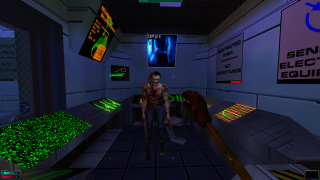
Given I just made the case above that few played Bioshock for its airless shooting, the same can be said of System Shock 2. The combat isn’t engaging, falling into the awkward no man’s land between shooter and RPG that games like the original Deus Ex or Mass Effect are guilty of, including some fairly aggressive weapon degradation early on. However, I legitimately derived more enjoyment from becoming profoundly overpowered by the end of this game, knocking over most enemies in 2-3 shots with the Assault Rifle or EMP Rifle because my RPG numbers were good, than I did with just about any of Bioshock 2’s tedious little sister protection sequences. That might speak to my impossibly high standards for shooters at this point versus my far more permissive ones for RPG combat, but if you’ve followed me for any serious length of time, you already know that I have an affinity for clunky, weird old shit.
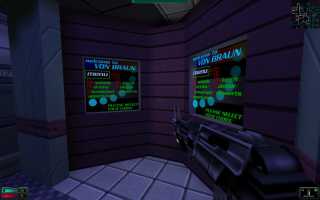
Of course, System Shock 2’s greatest strength is in creating a coherent sense of place, tone, and atmosphere with its environments. The graphical fidelity may be worse (though I did install some texture packs that made the whole thing look slightly prettier), but it still manages to make a spooky spacecraft feel believably fantastical and mundane at the same time, which is always 100% my shit with the whole “immersive sim” genre. Sure, there’s horrific alien biomass everywhere, but do you know what else is everywhere? Bathrooms. Personal audio recordings that conveniently have door codes or help you understand what happened. Admittedly, it’s hard to take some of the audio logs seriously when they’re delivered with all the monotone enthusiasm of “some guy from accounting” but the rest of the sound design is top-notch. I don’t find the game especially scary, but there’s something really disturbing about the way the infected enemies beg you to kill them, or the way the voice of the collective alien intelligence echoes in your mind. It’s nothing so striking as Bioshock’s philosophy, Prey’s meta-commentary, or Dishonored’s entire aesthetic, but it executes on a fairly straightforward sci-fi horror premise well.
In what is likely to be a controversial take, I’m less keen on SHODAN. While it’s amusing to know that Irrational literally stole the “The person talking to you on the radio for the first part of the game is the antagonist” twist in Bioshock from itself, there’s something very 90s about an an evil AI continually taunting you with a bunch of vocal distortion. Nah I get it, she’s gonna say the word “insect” a lot and then passive aggressively compliment you for not being dead. Speaking of “very 90s” I think most of the game’s industrial synth soundtrack is effective at creating a sense of dread. However, that won’t stop me from accusing some of its faster-paced tracks of sounding like they’d be more at home during a rave than a game where you’re slowly digging through corpses, managing your inventory, or attempting to listen to audio logs. I’m talking to you, first real music track encountered in the game.
Minor caveats aside, I really enjoyed my 10-ish hours with System Shock 2. It feels foundational and rough around the edges, but coming to it after Bioshock 2 was a little like when I played Demon’s Souls after finishing Dark Souls II. While mechanics have progressed and ideas have matured, the core of the experience is still recognizable and intact. It certainly left a big enough impression to get me to start writing again, and if that isn’t endorsement enough… I dunno, at least play Prey 2017, you Philistine.
Random Endorsement:
